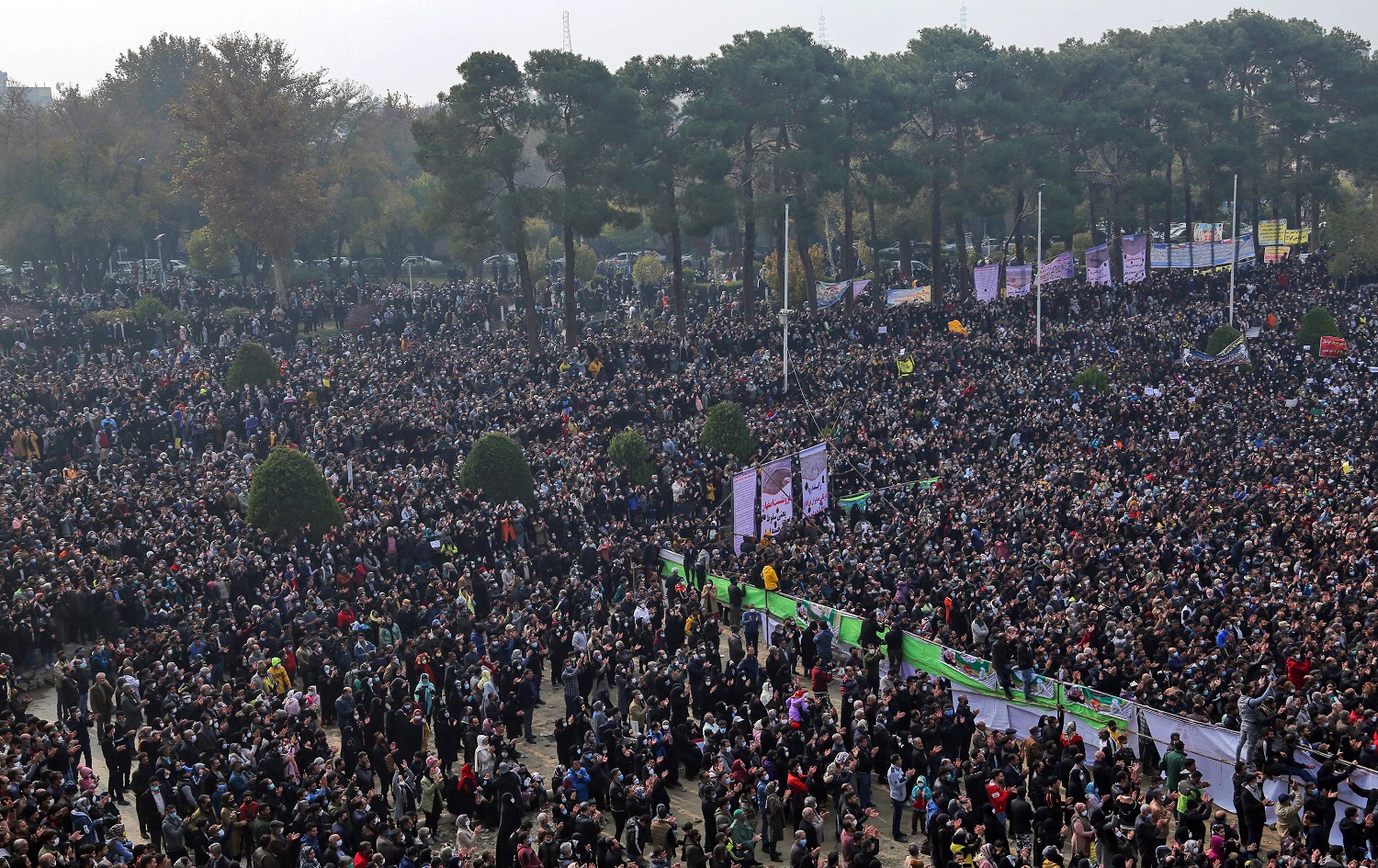
Iranians gather during a protest to voice their anger after their province's lifeblood river dried up due to drought and diversion, in the central city of Isfahan, on November 19, 2021. Photo: Fatmeh Nasr/ISNA/AFP
ERBIL, Kurdistan Region - Thousands of Iranians gathered in a dried up riverbed in the central city of Isfahan to protest mismanagement of water resources, state media reported.
Farmers and their supporters carried signs reading “Where is my Zayandeh River?” as they stood on the cracked ground where the Zayandehrood River once flowed, next to the famous Khaju bridge. The river, the largest river in Iran’s central plateau, has largely disappeared for the past two decades because of drought and diversion of water to industry and farming upstream.
The protests began more than a week ago but swelled on Friday as people joined from across the province.
The livelihood of farmers in the province has been “severely affected” by lack of water in the river, state media reported. The farmers complained that the government has not responded to their situation.
First Vice President Mohamad Mokhber instructed the ministries of energy and agriculture to take immediate steps to deal with the issue in Isfahan and provinces upstream, state TV reported.
President Ebrahim Raisi met with environmental activists in Tehran on Friday, telling them that the most frequent demand he hears from the people is for water and that water management must be prioritized.
In the summer, protests over water shortages in southern Khuzestan turned deadly and several people were killed in a crackdown by security forces.
Iran sought to be agriculturally self-sufficient after the 1979 revolution but its intensive agriculture, coupled with years of drought, has heavily depleted aquifers. The government has turned to the costly process of desalination to provide drinking water in the south and in the north it has built dams and tunnels on its rivers.








Comments
Rudaw moderates all comments submitted on our website. We welcome comments which are relevant to the article and encourage further discussion about the issues that matter to you. We also welcome constructive criticism about Rudaw.
To be approved for publication, however, your comments must meet our community guidelines.
We will not tolerate the following: profanity, threats, personal attacks, vulgarity, abuse (such as sexism, racism, homophobia or xenophobia), or commercial or personal promotion.
Comments that do not meet our guidelines will be rejected. Comments are not edited – they are either approved or rejected.
Post a comment